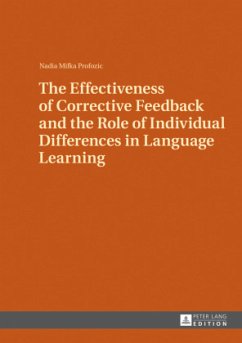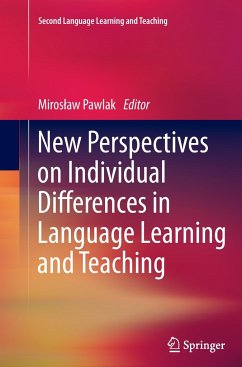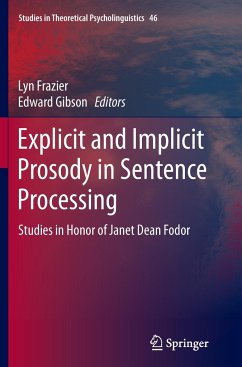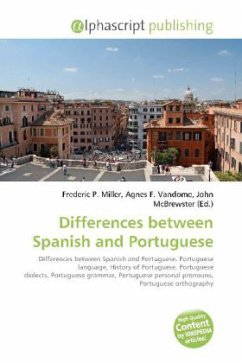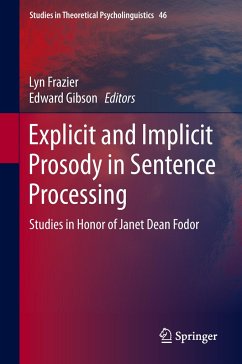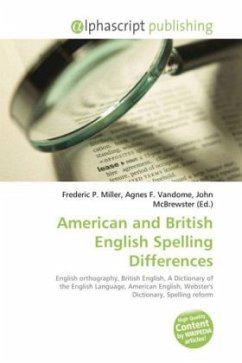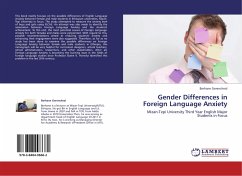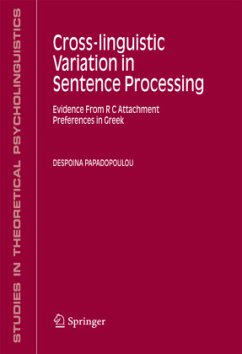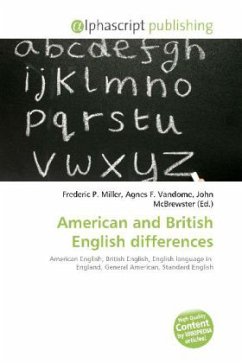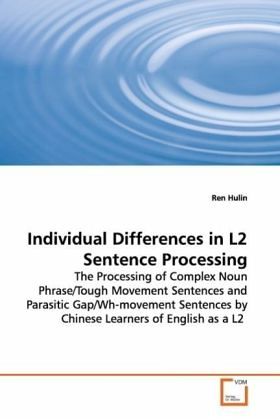
Individual Differences in L2 Sentence Processing
The Processing of Complex Noun Phrase/Tough Movement Sentences and Parasitic Gap/Wh-movement Sentences by Chinese Learners of English as a L2
Versandkostenfrei!
Versandfertig in 6-10 Tagen
52,99 €
inkl. MwSt.

PAYBACK Punkte
26 °P sammeln!
This book is intended for readers who are interested in examining Chinese-speaking learners' differences in the ability to comprehend certain self-embedded multiply complex English sentences such as Peter thinks that taking care of himself is necessary surprises the cleaner. Three closely related questions are addressed in the study: (i) what is the relationship between Chinese learners' educational level and their ability in complex English sentence processing? (ii) what is the relationship between working memory capacity and educated Chinese learners' ability in complex English sentence pro...
This book is intended for readers who are interested
in examining Chinese-speaking learners' differences
in the ability to comprehend certain self-embedded
multiply complex English sentences such as Peter
thinks that taking care of himself is necessary
surprises the cleaner. Three closely related
questions are addressed in the study: (i) what is
the relationship between Chinese learners'
educational level and their ability in complex
English sentence processing? (ii) what is the
relationship between working memory capacity
and educated Chinese learners' ability in complex
English sentence processing? (iii) is there a
correlation between educated Chinese learners's L1
proficiency and the ability in complex English
sentence processing? The research questions were
addressed by firstly providing some background
information, which was closely related to the
research questions; followed by four off-line and
three computer-administered self-paced reading
experiments.
in examining Chinese-speaking learners' differences
in the ability to comprehend certain self-embedded
multiply complex English sentences such as Peter
thinks that taking care of himself is necessary
surprises the cleaner. Three closely related
questions are addressed in the study: (i) what is
the relationship between Chinese learners'
educational level and their ability in complex
English sentence processing? (ii) what is the
relationship between working memory capacity
and educated Chinese learners' ability in complex
English sentence processing? (iii) is there a
correlation between educated Chinese learners's L1
proficiency and the ability in complex English
sentence processing? The research questions were
addressed by firstly providing some background
information, which was closely related to the
research questions; followed by four off-line and
three computer-administered self-paced reading
experiments.



